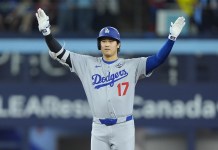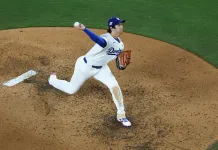In some of their previous playoff appearances, the Houston Astros gained advantages with some rather unscrupulous methods. For the ALCS, Houston has a big advantage based on the schedule. While it is true that the Astros essentially played a four-game series against the Mariners because Game 3 went 18 innings, they’ve had plenty of time to rest and prepare for a crack at the AL pennant.
The New York Yankees, meanwhile, had to record the final out on Tuesday just about 24 hours before taking the field for Game 1 of the ALCS on Wednesday in the Lone Star State. That could prove to be a huge edge for the Astros, as the emotions of the playoffs are maybe more draining than what it takes physically.
The Astros were going to be favored regard of opponent, and they certainly would have been a bigger favorite against the Guardians, but are still laying a hefty price against the Yankees. Many felt like the Dodgers and Astros were the best teams in baseball by a pretty sizable margin. One is still left standing, and that team has the chance to show it and advance to the World Series for the fourth time in seven years.
New York Yankees (%plussign% 150) vs. Houston Astros (-170)
While Houston has a noticeable rest advantage (not having played since Saturday) — which allows Dusty Baker and his staff to have the rotation and a bullpen blueprint put together — we know that there are no certainties in the MLB playoffs. It is a high-variance tournament played in small sample sizes where anything can happen. The three National League teams that won over 100 games didn’t even make the League Championship Series. The best team doesn’t always win a series.
Houston is the best team and a lot of it has to do with the pitching staff. Of the pitchers that threw at least seven innings this season, the highest ERAs belong to Jose Urquidy and Blake Taylor at 3.94. The MLB average ERA for a pitcher was 3.97. It was a little lower in the AL at 3.88, but that would just be nitpicking about the Astros. Every single one of their contributing pitchers had an average or better ERA.
The Astros allowed 3.2 runs per game, second to the Dodgers. The Yankees were third with 3.5 runs allowed per contest, which is a pretty sizable gap between the No. 1 and No. 2 teams in the AL. Oddly enough, presumptive AL Cy Young Award winner Justin Verlander was far and away the worst pitcher in the ALDS for Seattle, as he gave up six runs in Game 1, only for the Astros to walk it off on Yordan Alvarez’s game-winning blast off of Robbie Ray.
Verlander will get the ball in Game 1, followed by Framber Valdez. It was Lance McCullers who shone in the Game 3 scoreless marathon, so he’ll likely get that slot, followed by one of Luis Garcia or Cristian Javier. Garcia threw five scoreless innings with six strikeouts to get the win in the series clincher. As a collective starting staff, the Astros were tops in fWAR by 1.9 wins over the Phillies. They were second in ERA behind the Dodgers and second in FIP behind the Giants.
Even if you get the starters out of the game, the Astros were best in bullpen ERA and FIP, along with the league’s highest K%. In a best-of-seven series, depth is extremely important. From a pitching standpoint, only the Dodgers can hold a candle to the Astros.
The Yankees’ depth took a hit by playing a fifth game with Cleveland, especially with the rainout. With Gerrit Cole in Game 4 and Nestor Cortes in Game 5, the Yankees are starting Jameson Taillon in Game 1 and Luis Severino in Game 2. For a team that really doesn’t do much outside of hit home runs, the margin for error is thinner than you would like for the pitching staff and now the two top starters are out of commission until the series shifts back to the Bronx.
The extra games against Cleveland also hurt from a bullpen standpoint, where Clay Holmes was said to not be able to work back-to-back days and Wandy Peralta pitched in all five games of the Division Series. Jonathan Loaisiga seems like the other arm that Aaron Boone really trusts out there, so the Yankees are working with a thin pen as well.
What helped New York a bit against Cleveland was that the Yankees were good enough defensively to not let the Guardians’ fielding prowess be an advantage for the underdog. Well, the Astros are every bit as good defensively as the Yankees with one exception: They weren’t as good in the pitch-framing metrics, but they were a better defense in some other areas. They were second in Statcast’s Outs Above Average metric, fourth in FanGraphs’ all-encompassing Def metric and fifth in Defensive Runs saved. The Yankees were sixth, first and first, respectively, but FanGraphs does heavily weight pitch framing.
Offensively, the Astros are a lot like the Guardians in that they make a ton of contact, but they are unlike the Guardians in that they walk more often and hit for a lot more power. Houston was fourth in home runs with 214 and second in K% at 19.5%. Cleveland was first in K% at 18.2% (and still struck out a lot in the playoffs), but 29th in home runs.
Even though these were the two best teams in the American League, this series looks like a mismatch to me. It doesn’t help that Cole and Cortes might get one start apiece. After the travel day between Game 2 and Game 3, there are no other travel days. The Astros’ pitching depth is an enormous advantage.
You can lay the -170 or the best series price you can find. I even like Astros in 4 or 5 as those “Exact Series Props” start to populate.
Pick: Astros -170





